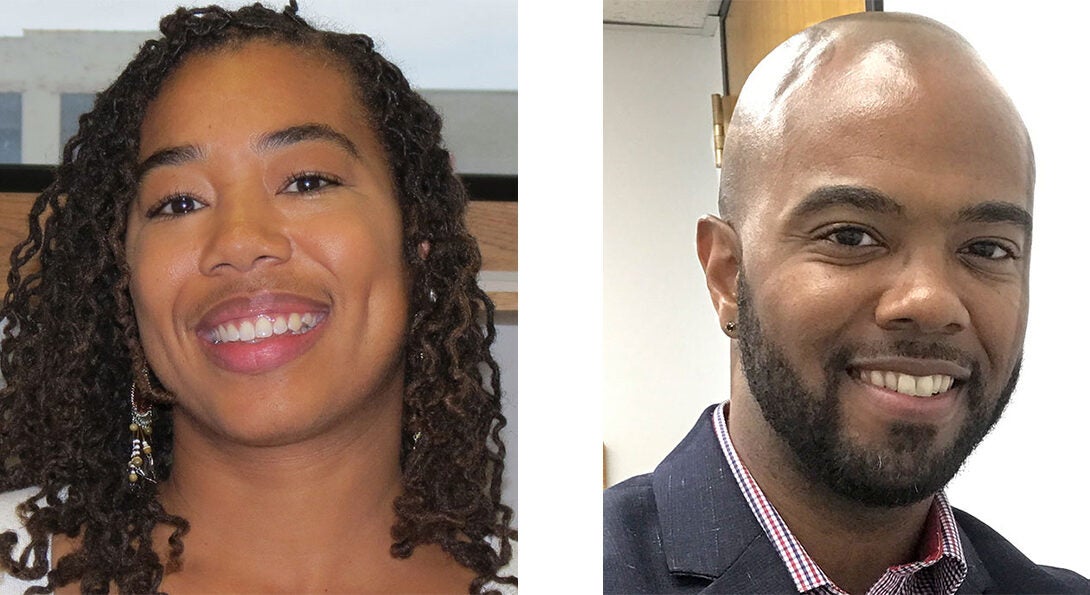Journal Selects Doyle, McLeod Paper as ‘Editor’s Choice’ for Scientific Quality

Researchers at the Jane Addams College of Social Work, led by Associate Professor Otima Doyle, PhD, have published a study in the Journal of Child and Family Studies (JCFS) on how African American fathers envision prevention programs aimed at supporting African American male youth who are at-risk for developing depression and/or aggressive behaviors.
The journal’s editors recently selected the paper, titled “All About How You Couch It:” African American Fathers’ Visions of Interventions for their Sons” as an ‘Editors’ Choice’ article based on its scientific quality and public health relevance.
Studies focusing on the behavioral health needs of young African American boys, as well as the strengths, contributions, and challenges faced by fathers (especially men living away from the child and are low-income) have been increasing. There remains, however, much to be learned, Doyle said.
Her latest work, which was assisted by colleagues Branden McLeod, PhD, associate professor at the Jane Addams College of Social Work, and Qiana R. Cryer-Coupet, PhD, associate professor of social work at Georgia State University who received her doctorate degree from the JACSW in 2015, is one of several related papers completed from this dataset. The related papers emphasize African American fathers’ co-parenting experiences, parenting practices, values they have passed down to their sons, and recruitment of fathers into clinically relevant programs.
Doyle’s research centers on how a father-focused approach to programming can prevent the onset of depression and aggression among African American youth who are at-risk. African American fathers are often involved in their children’s lives, even when they do not live with their children, and when they are no longer romantically involved with their children’s mother(s). Numerous fatherhood interventions have been developed, such as those included in the Responsible Fatherhood Programs, yet Doyle and her colleagues believe that “it is important to look deeper into the lived experiences of African American fathers,” she said.
Many African American youth are exposed to risk factors that can lead to the development of aggressive behaviors and depressive symptoms, such as lack of neighborhood safety, poverty, and racism. Moreover, “African Americans’ experiences with mood disorders, such as depression, may be particularly chronic and burdensome, and they are less likely than their White peers to receive care,” Doyle said.
“Those who receive treatment may be misdiagnosed due to nuanced clinical presentations of depression, which, on the surface, might look like anger, aggression or irritability,” she said. “Such misdiagnoses increase the risk of suicide, which rose by 60% between 2001 and 2017 among African American adolescent males.”
A notable contribution of the study is the first-hand accounts of the African American fathers who reported being active in their sons’ lives. Doyle conducted extensive interviews with 30 African American fathers whose biological sons, ranging in age from eight to 12, were at individual-, family-, or community-level risk for developing aggressive behaviors and/or depressive symptoms.
Numerous themes emerged from Doyle’s research. In those refrains fathers candidly expressed ideas about what could be useful in terms of the program content, as well as how such a program might be structured to best meet the needs of – and be of interest to – African American fathers and their sons. Fathers emphasized the importance of a strength-based approach that honors their lived realities. They endorsed group-based interventions characterized by a safe space, bonding opportunities with fathers and sons, and hands-on activities.
Fathers were interested in learning from their peers about parenting, but felt opportunities were limited to do so in a safe space where they could talk candidly about their experiences, including fears, worries, challenges and triumphs. One father stated, “Learning from other fathers would be “real down to earth…it ain’t gonna be no book answer, it’s gonna be…a… living-off-experience answer.”
Bonding across families can also be beneficial. Stated one father, “If you know that your son’s having an issue with this, have him talk to somebody else that can give him a different insight, different view. ‘Cause a lot of times we will receive things from somebody else before we receive it from our own parents directly.” Fathers wanted their sons to “see that it’s some other good Black fathers out here too….they really give to their kids, and they look like him… not just White kids’ dads… not just kids from the church; it’s kids in the community.”
Also of importance are activities that fathers and sons can participate in together. Said one father, “It’s gonna be all about how you couch it…we – men – are very visual and very kinesthetic; if it’s something we can do, we’ll get on board.…If you’re asking a group of men and boys to sit in a room and listen to a lecture, nah, probably not so much. But … we’re very competitive, so anything that’s gonna involve us competing …fathers against the sons or maybe me and my son competing against another father and his son, we’ll do that. It’s gotta be …fun… and we’re gonna have to use our hands ‘cause that’s just what engages us. But ask us to sit still and listen to stuff. Huh uh. Half the dads will be asleep and half the boys will be doing other things, fidgeting.”
The study’s findings, Doyle said, have direct implications for father-focused interventions. “They highlight the importance of creating safe spaces for African American fathers to interact with each other and their sons, as well as the need to incorporate – or center – kinesthetic activities.”